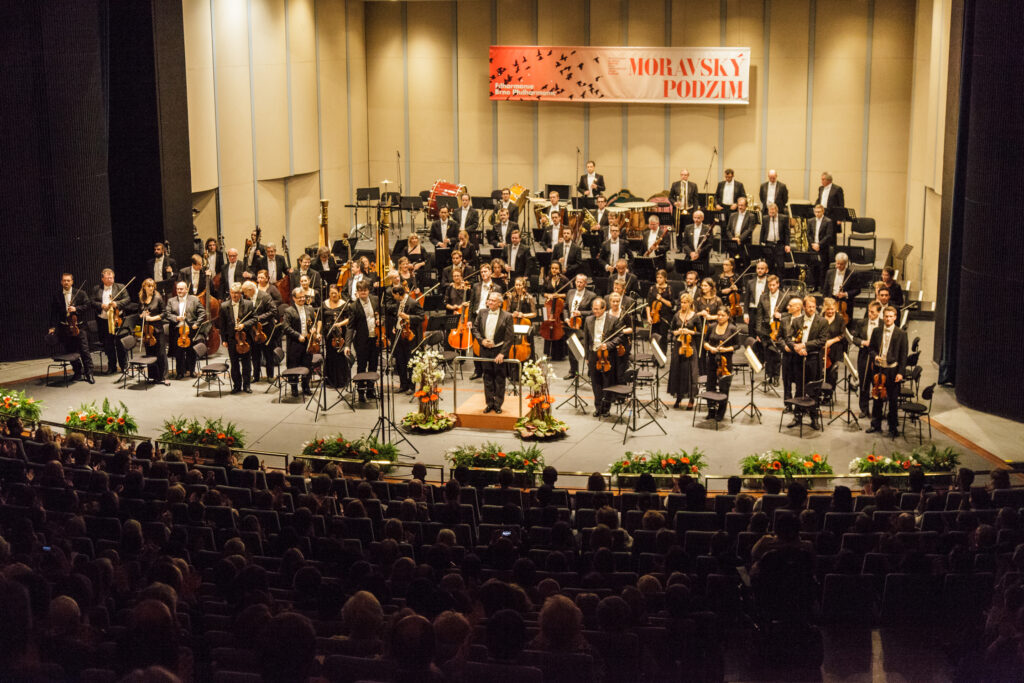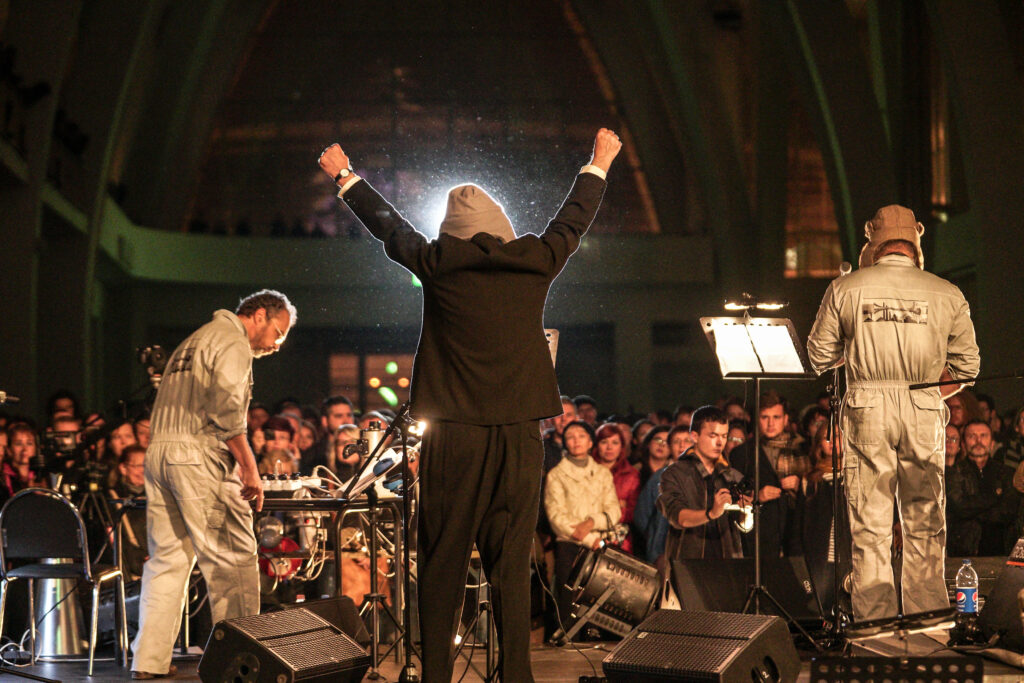The festival invites orchestras to Brno that were previously passing Europe by, alongside top chamber ensembles and the world’s most celebrated soloists. It is not only a festival of “interpretation” which seeks to bring to Brno the cream of the world’s performers and to compare them with first-class home musicians, but also a festival of “programming”, one that is not only about “stars” (and certainly not about “competition” between them), but also about “substance”.
Moravian Autumn takes pride in seeking new and interesting threads of programming, approaching living composers and giving them commissions. The festival also draws attention to young performers, giving them an opportunity to display their developing talents.
Before the history of Brno’s music festivals unfolded, there were celebrations of Janáček, first held during the composer’s life on the occasion of his 70th birthday and repeatedly thereafter. In 1954, the Brno Music May was founded. This was then held every year, reaching its 10th anniversary in 1964. The problém was that the May festival was a mere reflection of the Prague Spring festival, with the Pragokoncert agency, which held a monopoly on representing soloists from abroad, sending the same performers to Brno and other cities. So, in 1965, Rudolf Pecman proposed an entirely new type of music festival. It was to be thematic in character and held in the autumn, with international participation and feature a musicological colloquium alongside. The proposal was accepted and the first newly conceived Brno International Music Festival took place in 1966. It was a great success. Its main advantage was an attractive setting – a new theatre, opened on 2 October 1965. The large capacity of the new building initially raised concerns that it would not be able to attract a sufficiently large audience, but thanks to the new festival, which located all its main events in the new theatre, this did not prove a problem.


The first year’s programme was dedicated to Bohuslav Martinu, with the participation of many eminent guests including his wife, Charlotte Martinu. The first international musicological colloquium was also a success. The second festival, entitled Musica antiqua, was one of the first to present historically-informed performances of ancient music; the third event, dedicated to Janáček, was held shortly after the occupation of Czechoslovakia by Soviet troops in 1968 – and in defiance of the military. The programme was merely a cut-down version of what had originally been planned, with only Czech artists performing. In the following years, the festival’s audiences enjoyed the first Czechoslovak performances of works by the most prominent composers, including Penderecki, Lutosławski and Messiaen. There have also been premieres of many pieces by contemporary Czech and world composers at the Contemporary Music Biennial, first held in 1986. The Brno festival has hosted outstanding artists, of which two – the conductor Charles Mackerras and the pianist Rudolf Firkušný – have been awarded Doctor honoris causa degrees during the festival.
In 1993, the festival was renamed Moravian Autumn; the Contemporary Music Biennial became the annual Exposition of New Music, and since 1992 the Easter Festival of Sacred Music has also been held every spring. In 2012, the Filharmonie Brno took over as the organiser of all three festivals. In line with its tradition, Moravian Autumn brings leading Czech and international performers and composers to the stage. In 2013, the audience applauded the London Symphony Orchestra conducted by Valery Gergiev; in 2015, the Estonian, Erkki-Sven Tüür, was the resident composer, with several of his works performed, including the world premiere of the duo Conversio II, for violin and percussion. That festival was also attended by three other composers: Juste Janulyte from Lithuania, Michel van der Aa from the Netherlands, and Kryštof Mařatka, a Czech composer settled in France. At the most recent festival, audiences were particularly thrilled by performances of Last Pagan Rites written by the Lithuanian, Bronius Kutavicius, and Miroslav Kabeláč’s Symphony No. 8 “Antiphons”, as well as a tremendous production of Arseny Avraamov’s Symphony of Sirens, which was presented with the participation of many, often bizarre, instruments and performers.
Clearly, then, Moravian Autumn always has a lot to offer the residents of Brno and its visitors, and I’d like to conclude with a quotation by Rudolf Pecman, in his beloved Latin: Vivat, crescat, floreat musicae festum Brunense!
Jindřiška Bártová, translated by Štěpán Kaňa
Tel.: +420 539 092 801
Filharmonie Brno, příspěvková organizace
Komenského náměstí 534/8
602 00 Brno – město
Česká republika
IČ: 00094897
DIČ: CZ00094897